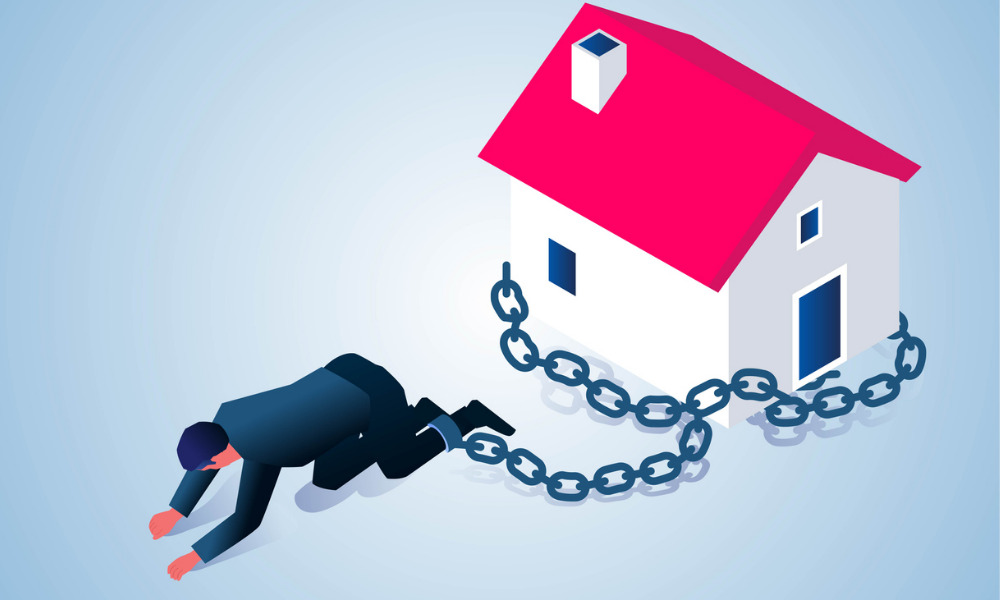Borrowers who purchased at the height of the boom could find refinancing impossible, expert warns

Borrowers who purchased their home at the height of the pandemic housing boom could find themselves locked in “mortgage prisons” as interest rate hikes drive property prices down, analysts warn.
Rate hikes have not yet driven prices down significantly. However, some analysts predict that continued rate increases could push prices down by 20% over the next 18 months, according to a report by news.com.au.
That would impact the equity in recently purchased properties, bringing it below 20% and making it expensive or even impossible for those homeowners to refinance their loans.
Sally Tindall, research director at RateCity, told news.com.au that families who hadn’t received a decent pay rise recently could find that they no longer met the banks’ serviceability tests – especially if they bought when rates were low and borrowed the maximum they could.
Late last year, the Australian Prudential Regulation Authority introduced more stringent stress tests that require loan applicants to show they can afford monthly repayments at 3% more than the current rate.
“Borrowers who own less than 20% of their property value when their fixed rate ends could find they’re forced into negotiating solely with their current lender, or having to pay lenders’ mortgage insurance,” Tindall said.
Once a fixed-rate period ends, the loan switches over to the bank’s revert rate. At that point, borrowers can refix, negotiate a lower variable rate or move to another lender for a better deal.
But thanks to falling house prices, Tindall told news.com.au that some borrowers could be unable to refinance, finding themselves in a “mortgage prison.”
Read next: Should banks prepare for a wave of defaults?
For example, if someone bought a median-priced house in Sydney in December 2021 with a 20% deposit, the amount of equity in their home could shrink to 3% by the end of next year if prices dropped by more than 20%, news.com.au reported. If they had a two-year fixed loan, by the end of this period they would have a loan-to-value ratio of 97% – making it effectively impossible for them to refinance.
The situation is even grimmer for someone who purchased in Sydney with a 10% deposit or less, as they could find themselves in negative equity, news.com.au reported.
Tindall said that people who purchased even six months earlier would be in a better position, since much of the property price increases happened in 2021.
However, she stressed that being in negative equity was a temporary condition, and the long-term forecast for the property market was that it will continue to go up. People who kept making their mortgage repayments would be able to ride out the storm – and may never even realise they’d gone backward, she said.
“The vast majority of borrowers coming off a fixed rate should be able to refinance without raising even a single eyebrow, [but] anyone who bought recently and overstretched themselves to do so should double-check their financial position before they refinance,” Tindall told news.com.au.



